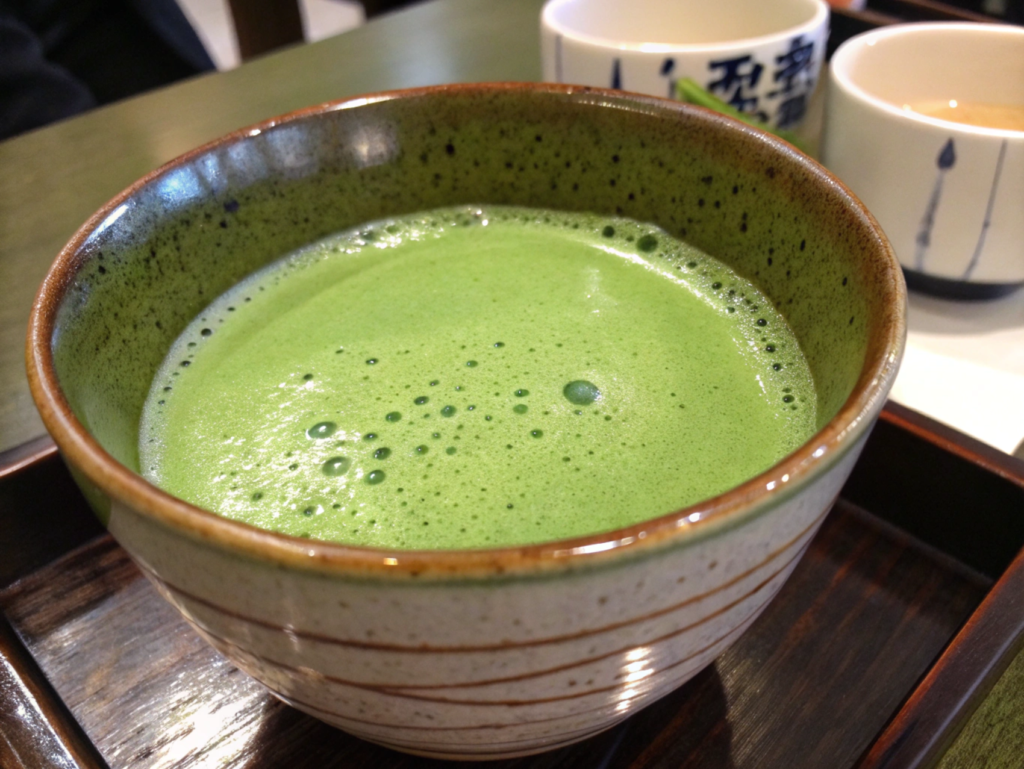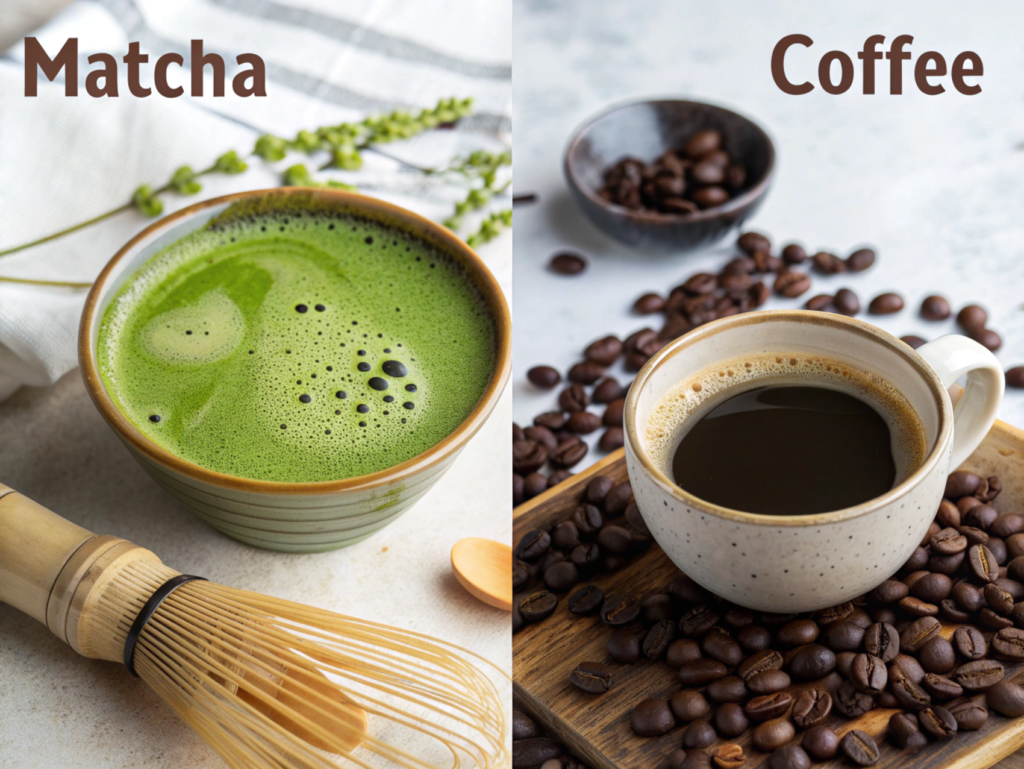Caffeine is a staple for millions worldwide, providing the much-needed boost to kickstart the day or power through the afternoon slump. While coffee has long held the crown as the go-to caffeine source, matcha, a finely ground green tea powder, has emerged as a popular alternative. But when it comes to energy, focus, and health benefits, which is the ultimate caffeine fix? Let’s dive in.
What Is Matcha?
Matcha is a vibrant green tea powder made by grinding young tea leaves into a fine texture. Its roots trace back to Japan, where it has been a key part of traditional tea ceremonies for centuries. Unlike regular green tea, with matcha, you consume the entire leaf, maximizing its nutritional benefits.
One of the standout features of matcha is its high antioxidant content, particularly catechins like EGCG, which can help reduce inflammation and protect cells. Additionally, matcha contains L-theanine, an amino acid that promotes calm focus without the jitters often associated with caffeine.
For a deeper dive into matcha’s health benefits, check out this resource on the health benefits of green tea.

What Is Coffee?
Coffee, the world’s most beloved brewed beverage, is made from roasted coffee beans. Its versatility is unmatched, with a variety of preparation methods like espresso, French press, or pour-over. Coffee is rich in antioxidants, particularly chlorogenic acid, which has been linked to numerous health benefits.
Studies suggest coffee consumption may lower the risk of diseases such as Parkinson’s and type 2 diabetes. However, caffeine in coffee can lead to side effects like anxiety or digestive discomfort for some individuals. Curious about caffeine levels in beverages? Visit this comprehensive guide on understanding caffeine content in beverages.
Caffeine Content: Matcha vs. Coffee
- A cup of matcha typically contains 30-70 mg of caffeine, depending on the amount of powder used.
- Coffee, on the other hand, packs a punch with 95-200 mg of caffeine per cup, depending on the brewing method.
While coffee provides a quick energy spike, the combination of caffeine and L-theanine in matcha delivers a more sustained, balanced boost. This makes matcha an excellent option for those who prefer calm focus over the rapid highs and lows associated with coffee.
Health Benefits of Matcha
Matcha is a nutritional powerhouse with numerous health benefits:
- High in antioxidants like catechins, which combat oxidative stress.
- Contains L-theanine, promoting relaxation without drowsiness.
- May support weight loss by boosting metabolism.
- Could reduce the risk of chronic diseases, thanks to its anti-inflammatory properties.
Health Benefits of Coffee
Coffee is equally impressive when it comes to health perks:
- Rich in chlorogenic acid, which may reduce the risk of type 2 diabetes.
- Improves mental alertness and mood due to its caffeine content.
- May protect against neurodegenerative diseases like Alzheimer’s and Parkinson’s.
- Packed with antioxidants that fight free radicals.
Potential Side Effects
Matcha:
- Excessive consumption may lead to insomnia or jitteriness due to its caffeine content.
- Quality matters—low-grade matcha may contain contaminants.
Coffee:
- May cause increased heart rate, digestive issues, or anxiety in sensitive individuals.
- High caffeine dependence can lead to withdrawal symptoms like headaches.
Preparation and Accessibility
Matcha:
- Prepared by whisking matcha powder with hot water, often using a traditional bamboo whisk.
- More expensive and harder to source than regular tea or coffee.
Coffee:
- Prepared using various brewing methods, from drip coffee makers to espresso machines.
- Widely accessible and budget-friendly, with options for every palate.

FAQs
Is the caffeine in matcha better than coffee?
Yes, matcha caffeine is often considered better for sustained energy. The combination of L-theanine in matcha slows caffeine absorption, providing a calm focus without the rapid spike and crash associated with coffee.
Does matcha caffeine crash compared to coffee?
No, matcha is less likely to cause a caffeine crash. Its L-theanine content helps maintain steady energy levels for a longer duration.
Does matcha or coffee keep you awake?
Both can keep you awake, but in different ways. Coffee provides a quick and intense energy boost, while matcha offers a gentler, more sustained alertness.
Why does coffee give me anxiety but matcha doesn’t?
Coffee’s caffeine hits the bloodstream quickly, potentially triggering anxiety in sensitive individuals. Matcha contains L-theanine, which promotes relaxation and counterbalances caffeine’s stimulating effects.
Conclusion
When choosing between matcha and coffee, the decision ultimately depends on your preferences and health goals. Coffee offers a quick energy boost and a rich flavor, while matcha provides a smoother, more sustained energy with additional calming benefits. Whether you prefer the robust taste of coffee or the earthy flavor of matcha, both beverages have their unique benefits. The ultimate caffeine fix is the one that fits your lifestyle best!


1 thought on “Matcha or Coffee: Which Is the Ultimate Caffeine Fix?”